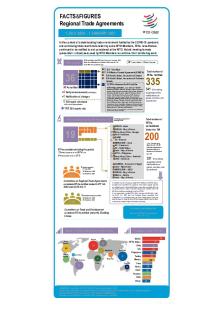Arrears to be Addressed Regarding Social Cognition PDF

| Title | Arrears to be Addressed Regarding Social Cognition |
|---|---|
| Author | Brian Murimi |
| Course | Financial Engineering |
| Institution | Jomo Kenyatta University of Agriculture and Technology |
| Pages | 4 |
| File Size | 164.5 KB |
| File Type | |
| Total Downloads | 92 |
| Total Views | 139 |
Summary
Generally fair summary of the unit involved...
Description
Running Head: ARREARS TO BE ADDRESSED REGARDING SOCIAL COGNITION
Arrears to be Addressed Regarding Social Cognition Student’s Name Institution Affiliation
1
ARREARS TO BE ADDRESSED REGARDING SOCIAL COGNITION
2
Resources for Social Cognition Article Citation/ Book Chapter
Database/ Website
Keywords
Search Limitations
Jones, E. (1984). Social psychology: Social cognition. Science (New York, N.Y.), 226(4673), 433-434.
JSTOR Life Sciences Collection. Entails several sources EBSCO PsycARTIC LES
Psycholog y Social Cognition
Articles, PeerReviewed
Social Psycholog y, Social Cognition
The outcome was too broad to choose from; results should be refined
Elsevier ScienceDire ct Journals. Access to the article is in the form of many links ScienceDire ct Journals
Developm ent of Social Cognition
Articles, PeerReviewed, Publication Date: 20152020 Articles, PeerReviewed, Publication Date: 20152020
Refine the outcome since the results are unrelated to the topic
Elsevier ScienceDire ct Journals
Social Cognition, Personalit y
OneSearch SDSU Library
Social Cognition
WebsiteOcf.berkele y.edu
Introducti on, Social Cognition
Articles, PeerReviewed, Publication Date: 20152020 Articles, PeerReviewed, Publication Date: 20002020 Books, PeerReviewed, Publication Date: 20002020 -
Kitayama, S. (2017). Journal of Personality and Social Psychology: Attitudes and Social Cognition, 112(3), 357360. Kilford, E., Garrett, E., & Blakemore, S. (2016). The development of social cognition in adolescence: An integrated perspective. Neuroscience and Biobehavioral Reviews, 70, 106-120. Korman, J., Voiklis, J., & Malle, B. (2015). The social life of cognition. Cognition, 135, 30-35.
Arntz, A., & Haaf, J. (2012). Social cognition in borderline personality disorder Behaviour Research and Therapy, 50(11), 707-718. Strack, F., & FArster, J. (2009). Social cognition: The basis of human interaction New York: Psychology Press. Kihlstrom. (2013) An Introduction to Social Cognition. University of California, Berkeley
Social Life, Cognition
Issues to be Improved in Searching the Database Add more search limits to define more of the topic related
Most of the results were unrelated to the main idea of social cognition
The results should be refined to be more familiar with the topic searched Refine results since they are wide
-
ARREARS TO BE ADDRESSED REGARDING SOCIAL COGNITION
3
Arrears to be Addressed Regarding Social Cognition Kihlstrom has discussed on the topic of social cognition by first defining what the terminology refers to and according to him, social cognition does not characterize one’s behavior according to what situation he/she is involved in but what one comprehends of the situation along with its consequences based on his/her knowledge, reasoning, judgement and problem-solving techniques among other human traits [ CITATION Kih13 \l 1033 ]. Regarding the general social interaction cycle, social memory and judgements among a few other notions as discussed by Kihlstrom, there are a few queries I would like to raise considering his understanding of social cognition; 1. When you are illustrating about the general social interaction cycle, wouldn’t you think that your example is biased since the target may be influenced by the emotions expressed by the actor rather than his understanding of the situation? 2. When you talk about social memory particularly the semantic and episodic memories, where would you consider or categorize memorie that are inconsistent and are only available from time to time customarily when triggered by an object or environment? 3. You describe social judgements in human beings as being caused by internal factors for example problem solving which I do not think is entirely the case considering that numerous external aspects affect how we approach our thoughts, for instance, when the society in a particular country criticizes a behavior such as cross-dressing, then the citizens of the country will automatically criticize those with such behavior in reference to their norms and traditions. What is your take on this remark? 4. Lastly, please comment on the distinction between the development of social cognition of a normal human being and a psychopath. Additionally, how does an individual’s childhood implicate the development of his/her social cognition?
ARREARS TO BE ADDRESSED REGARDING SOCIAL COGNITION
4
References Kihlstrom, J. F. (2013). An Introduction to Social Cognition. Retrieved from ocf.berkeley.edu: https://www.ocf.berkeley.edu/~jfkihlstrom/BSOG2010_IntroSocCog.htm San Diego State University. (2020). OneSearch. Retrieved from San Diego State University Library: https://sdsu-primo.hosted.exlibrisgroup.com/primo-explore/search? vid=01CALS_SDL&lang=en_US...
Similar Free PDFs

Stages of Social Cognition
- 4 Pages

To be - There be
- 4 Pages

to be advised later
- 1 Pages

Verbo To Be e Verbo There To Be
- 2 Pages

VERBO TO BE
- 1 Pages

El verbo \"to be\"
- 2 Pages

Enclothed cognition
- 2 Pages

BE Going TO - schemi
- 1 Pages
Popular Institutions
- Tinajero National High School - Annex
- Politeknik Caltex Riau
- Yokohama City University
- SGT University
- University of Al-Qadisiyah
- Divine Word College of Vigan
- Techniek College Rotterdam
- Universidade de Santiago
- Universiti Teknologi MARA Cawangan Johor Kampus Pasir Gudang
- Poltekkes Kemenkes Yogyakarta
- Baguio City National High School
- Colegio san marcos
- preparatoria uno
- Centro de Bachillerato Tecnológico Industrial y de Servicios No. 107
- Dalian Maritime University
- Quang Trung Secondary School
- Colegio Tecnológico en Informática
- Corporación Regional de Educación Superior
- Grupo CEDVA
- Dar Al Uloom University
- Centro de Estudios Preuniversitarios de la Universidad Nacional de Ingeniería
- 上智大学
- Aakash International School, Nuna Majara
- San Felipe Neri Catholic School
- Kang Chiao International School - New Taipei City
- Misamis Occidental National High School
- Institución Educativa Escuela Normal Juan Ladrilleros
- Kolehiyo ng Pantukan
- Batanes State College
- Instituto Continental
- Sekolah Menengah Kejuruan Kesehatan Kaltara (Tarakan)
- Colegio de La Inmaculada Concepcion - Cebu







